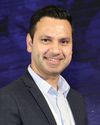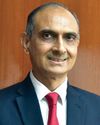
While America's First Amendment in 1791 safeguarded their citizens free speech along with that of the press; India's First Amendment curiously in 1951 put restrictions on freedom of speech and expression.
Despite that there was freedom of the press and the citizens made their voices heard very loudly, especially in the early 1970s. That led to the Emergency of 1975-77. However, its end led to a more vocal press and citizens along with the concept of the public interest litigation (PIL).
THE POST-EMERGENCY ERA
Newspapers and magazines flourished in the 1980s as TV sets mushroomed all over India. The next attempt to muzzle the press came in 1988 via the Defamation Bill. That was seen as a draconian anti-press move but luckily there was so much outrage that it was shelved.
It may have been one of the reasons for the government ultimately being defeated in 1989.
The 1990s saw Liberalization, satellite TV and the Internet. Public discourse was changed for good. We had multiple narratives 24X7. We ended the millennium thinking that censorship was a thing of the past and there were simply too many channels of freedom of speech to clamp down upon.
THE NEW MILLENNIUM
This story is from the May 2023 edition of DataQuest.
Start your 7-day Magzter GOLD free trial to access thousands of curated premium stories, and 9,000+ magazines and newspapers.
Already a subscriber ? Sign In
This story is from the May 2023 edition of DataQuest.
Start your 7-day Magzter GOLD free trial to access thousands of curated premium stories, and 9,000+ magazines and newspapers.
Already a subscriber? Sign In

Data center trends 2025: Innovation in powering and cooling AI racks, managing energy consumption
Vertiv anticipates increased innovation and integration for high-density computing, regulatory scrutiny around AI, focus on sustainability and cyber security efforts.

The Switzerland of Data and AI a weather-check
It is both remarkable and challenging when crucial R&D work - with global connotations- starts happening in Indian labs. An example- from a Cloud and AI player.

Prioritizing the Impossible: How Genpact's SOC Tackles Cyber Threats
Genpact's Vice President of Global Information Security, Faizul Mufti, discusses the company's multi-layered approach to cybersecurity. By prioritizing incident response, leveraging threat intelligence, and fostering a culture of security, Genpact aims to stay ahead of evolving cyber threats and protect its sensitive data.

Connected, Protected and Sustainable: Cisco's Vision for the Network of Tomorrow
As organizations face the demands of hybrid work, multi-cloud environments, and sustainable IT, networking is no longer just an infrastructure component― it's the backbone of digital transformation. In this exclusive conversation, Brink Sanders, Vice President of Global Networking Sales at Cisco, discusses how Cisco is helping enterprises navigate these challenges with forwardthinking solutions that blend innovation, security, and adaptability.

Multi-Cloud Mastery: Lessons from a CIO on Choosing the Right Cloud for the Job
In an exclusive interview, Prosenjit Sengupta, Group Chief Digital and Information Officer (CDIO), shares insights on ITC's cloud journey, discussing the challenges, benefits, and best practices of leveraging Azure, AWS, and Google Cloud.

Secure and Simplify SD-Branch Networks
Secure and seamless branch network management is critical in today's IoT-driven, cloud-centric world. A unified SD-Branch solution offers the much-needed convergence of networking and security to tackle modern-day challenges.

Is Your Multi-Cloud Environment Zero-Trust Ready?
Tony Velleca, CEO of CyberProof, a UST company, shared his insights on the challenges of implementing zero-trust security in multi-cloud environments. As organizations navigate the complexities of managing multiple cloud providers, Velleca emphasized the importance of achieving unified visibility, policy enforcement, and continuous monitoring to protect sensitive data and prevent cyber threats.

The Toxic Cloud Trilogy
As Indian organisations increasingly migrate to the cloud, they face a complex and evolving security landscape. Ari Eitan, Director of Research at Tenable, highlights the \"Toxic Cloud Trilogy\" - a convergence of publicly exposed workloads, critical vulnerabilities, and over-privileged identities - as a critical threat to Indian organisations. In this interview, Eitan discusses the unique vulnerabilities of cloud environments, systemic issues preventing organisations from fully addressing weaknesses and practical steps Indian organisations can take to mitigate these risks.

Networking Redefined: The Cisco Vision for a Connected Future
At the sidelines of Cisco Live 2024 in Melbourne, Raymond Janse van Rensburg, Vice President of Networking and Solutions Engineering for APJC at Cisco, engaged in an insightful conversation with Minu Sirsalewala, Executive Editor of Dataquest. During the interaction, he shared about the transformative trends shaping the networking and communication landscape. From AI-driven automation to the evolving dynamics of IoT, Cisco's strategies aim to redefine enterprise connectivity, security, and operational resilience.

HPCL's AI Evolution: From Generative Models to Secure Cloud Integration
Jayant Gupta, Executive Director of Information Systems at Hindustan Petroleum Corporation Limited (HPCL), shares insights on the company's strategic approach to leveraging generative AI, managing hybrid cloud environments, and staying ahead of advancements in emerging technologies.